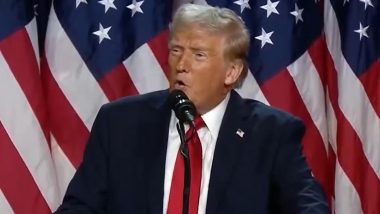Washington, Jul 24: Nearly two years after the United States designated India as a "Major Defence Partner", the US Congress has asked the Trump Administration to come up with a strategy that can reflect a measurable progress in its defence ties with India and sought steps to put a curb on its two major adversaries China and Russia. A US congressional conference report comprising bipartisan groups of members from House and Senate Armed Services committees today made a provision on these lines in the National Defense Authorization Act (NDAA)-2019.
According to a summary of the conference report, NDAA-2019 “requires the Secretary of Defense and Secretary of State to submit a forward-looking strategy and specific benchmarks for measurable progress toward enhancing US defense cooperation with India and India's status as a major defense partner.”
The full conference report would be available in the next few days. The NDAA-2019 now moves to the Senate and the House for a formal passage before it can be sent to the White House for President Donald Trump to sign into law.
Among other things, NDAA extends authority for the Maritime Security Initiative (MSI) for an additional five years, redesignates the Southeast Asia MSI as the Indo-Pacific MSI, includes Bangladesh and Sri Lanka as recipient countries of assistance and training, and adds India as a covered country eligible for payment of certain expenses. It also requires the Secretary of Defense to submit a five-year plan for an “Indo-Pacific Stability Initiative.”
Noting that the National Defense Strategy identifies the reemergence of long-term, strategic competition as the central challenge facing the United States, the conference report classifies China and Russia as strategic competitors that seek to shape the world toward their authoritarian model through destabilising activities, threatening the security of the United States and its allies.
To help deter further Chinese and Russian aggression, the NDAA, as per the conference report, includes the Foreign Investment Risk Review Modernization Act and the Export Control Reform Act to give the Committee on Foreign Investment in the United States (CFIUS) the authority it needs to address national security concerns.
It also requires a public report on the military and coercive activities of China in the South China Sea and elsewhere in the Indo-Pacific region and limits Pentagon funds for Chinese language programmes at universities that host a Confucius Institute unless certain criteria are met.
NDAA modifies the annual report on Chinese military and security developments to include malign influence, such as efforts to influence media, cultural institutions, business, and academic and policy communities in the United States.
It authorises an additional USD235 million to procure deployable air base systems in the US Pacific Command area of responsibility to support NDS priorities and “resiliency” and “agile logistics” force posture initiatives as well as to enhance the credible combat power of US forces in the Indo-Pacific region.
Prohibiting Chinese participation in RIMPAC naval exercises subject to waivers by the Secretary of Defense, NDAA 2019 prohibits the federal government from procuring or obtaining, as well as entering into, extending, or renewing a contract with an entity that uses telecommunications equipment or services produced by Huawei Technologies Company or ZTE Corporation.
(This is an unedited and auto-generated story from Syndicated News feed, LatestLY Staff may not have modified or edited the content body)













 Quickly
Quickly






















